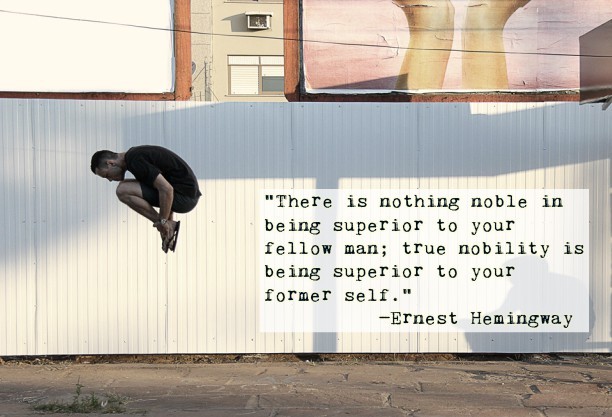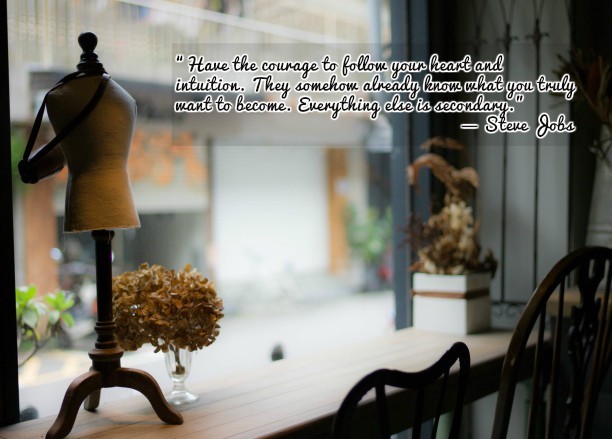Compare courses from top Australian unis, TAFEs and other training organisations.
8 Career Defining Moves to Make in Your 30s
Your 30s are a great time to invest in yourself so you can continue to reap the rewards later on in your career. Here are 8 career goals to kick when you’re in your thirties.
Zahra Campbell Avenell
Jul 11, 2016
Hands up if those Top 30 Under 30 lists freak you out, even if just a little.
Me too! Welcome to the club.
It’s commonly accepted that your twenties are a time for self-discovery and experimentation, and your thirties are when you should have (at least) begun to put it all together. But that certainly doesn’t mean you have to have all the answers – don’t worry, most of us don’t have this ‘adulting’ business completely nailed.
Having said that, your 30s are a great time to invest in yourself so you can continue to reap the rewards later on in your career. Researchers at the National Bureau of Economic Research studied the highest career points of scientists and Nobel Prize winners, and found that the late 30s were optimal for peak performance. And this isn’t just true for the uber-geniuses of the world — Amy Poehler hadn’t even started working at Saturday Night Live until she was 31; J. K. Rowling published Harry Potter and the Philosopher’s Stone when she was 32; Reid Hoffman co-founded LinkedIn when he was 35 and Matthew Weiner (creator of Mad Men) didn’t even get his first paid writing gig until he was 30.
So your thirties shouldn’t be spent nursing a quarter-life crisis; they should be about stirring things up and kicking things around to get you in the best career shape of your life. The good news is that even if your early thirties are a distant memory, it’s never too late to get started on any of these career-making moves:
1. Build (and maintain) a strong network
By the time you’re in your 30s, you should have learned to say no to some people and yes to others. Devote the time and effort in getting to know people, and expand your professional circle. Keep track of your professional contacts by exchanging business cards wherever possible (have some printed if you don’t get them for your job) and get into the habit of adding people on LinkedIn soon after meeting them. You never know when people in your network can come in handy – they could introduce you to a client, give you new industry insights or even help get you a job.
2. Get really, really good at what you do
Your 30s are the time to hone your craft. Put in the effort to become the very best at what you do. If you’re not happy with your career (which let’s be honest, most of us have chosen somewhat arbitrarily in our teens or 20s), it’s never too late to start over. Invest in becoming extraordinary at what you do – you owe it to yourself. Life’s too short to settle for mediocrity.
3. Build your personal brand, and own it like a boss
In your 30s, you should be more comfortable in your own skin and have a better understanding of who you are, what you’re passionate about and what you’re good at. Use this information to develop a strong personal brand, and sell the hell out of it. When people ask you the inevitable question, ‘What do you do?’ don’t be caught short – charm and disarm them with your beautifully crafted personal brand statement. And once you know what this is, don’t let yourself get distracted by anything outside what’s “on-brand” for you – this is your time. Shine!
4. Give yourself the gift of the gab
If you’re an articulate communicator, in person and/or in writing, you’ve won half of every business battle. But even if you’re not naturally a gifted wordsmith, you can develop your verbal, writing and public speaking skills. Strong communication skills will help people take you seriously, and help propel you further along your career trajectory.
5. Learn to give feedback
Hopefully you would have learned how to receive feedback gracefully in your 20s. Feedback – both positive and constructive – is a gift, and in your 30s you should learn to give feedback in a way that the recipient will cherish, not resent it.
Start off with asking the person if they would like your feedback – there is nothing more annoying than people giving you their unsolicited opinion. Then use the BIO model, injected with empathy: comment on the Behaviour (i.e. not the person), the Impact it had, and their Options going forward.
Here’s an example of good constructive feedback: ‘Sue, may I share some feedback with you? When you delivered your presentation, you kept looking down at the floor (B). As a result, you appeared nervous and people started to leave halfway through the presentation (I). I know it can be difficult to make eye contact with such a large group! I find it useful to look over the heads of people in the audience – it’s a lot less nerve-racking (O).”
6. Wear a suit of confidence
Fake it till you make it, even if you’re quivering like a leaf inside. Science has shown that you can trick your brain into being more assertive – even forcing a smile can make you happier and decrease your stress levels. Be aware of your body language, as it can speak volumes about you long before you open your mouth. Standing up straight, maintaining eye contact, dressing the part (even if you work in a casual environment) and adopting a ‘power pose’ can send strong signals to your brain and others around you. Get over your imposter syndrome – you’ve got this!
7. Hustle, baby, hustle
Your 30s are an incredible time to learn to sell – yourself, your ideas, your politics or your product. For many people, “sales” is a dirty word, evoking sleazy late-night infomercial hosts and dodgy used car dealers. But if you put aside those associations for a moment, you’ll see that sales skills are essentially just the ability to communicate the benefits of something. And if you’re able to do that, it can get you over the line in so many situations – interviews, negotiations, cold calls or making a business case to your boss. There are some great books on sales skills that don’t advocate slimy tactics – Dan Pink’s To Sell Is Human is a great place to start. And then, most importantly – practice, practice, practice.
8. Take a few risks
This is the time to test the boundaries of your comfort zone. Are you in a career that you love? If the answer is no, don’t fret – it’s never too late to hit the reset button, least of all in your 30s. You’re far more likely to regret what you didn’t do than something you tried and failed at. Don’t worry about the milestones that society says you have to reach by a certain point – there are plenty of examples of successful people that failed many, many times before they finally succeeded. Try your hand at learning a new skill, travelling, starting up your own business or quitting a job you hate. It may seem scary now, but your future self will thank you for it.
Curious about what career goals you should have ticked off in your 20s and 40s? Check out these related articles.
Liked this article? Share it!
Want more like it? Subscribe to our newsletter!
About the author
Zahra Campbell-Avenell covers career planning, skill development, and professional advice at Career FAQs.








